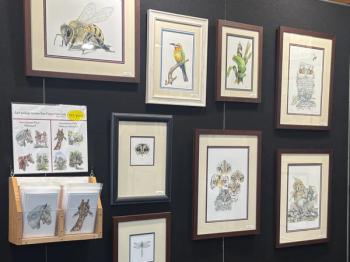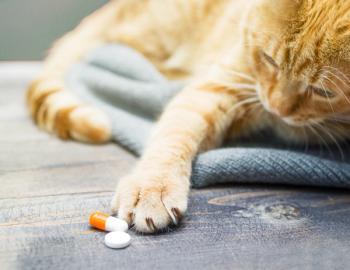
- dvm360 August 2023
- Volume 54
- Issue 8
- Pages: 46
Forming a connection
Mentorship can improve the experience of current and future veterinarians
This content is sponsored by Vet Set Go and Merck Animal Health.
Concerned about staff shortages and burnout, veterinarians are looking for ways to improve their field. What might help? Youth. Adam Christman, DVM, MBA, of dvm360® Live!, sat down with Stephanie Jones, DVM, and Chris Carpenter, DVM, to discuss how shadowing improves overall well-being, educating the next generation of vets, and the new app that is making everything easier.
Christman: What do we know about aspiring veterinarians?
Jones: Aspiring veterinarians don’t know all of the ins and outs of what it means to be a veterinarian, which makes it difficult for them to know where to start. Our job is to provide support and resources for their career.
Carpenter: If you interview veterinarians across the country, most of them decided on this career before [they were 13 years old]. The age range is the same for future veterinarians. When they try to volunteer with a veterinarian and with animals, so many people tell them they’re too young. Vet Set Go came from this mentality. Veterinarians need to mentor them because although they are young, they are also passionate.
Christman: Why should you mentor a future vet?
Carpenter: It is not only important to a future veterinarian, but also to a current veterinarian, veterinary team, and a hospital’s standing in the community. It is a chance to raise everybody up. I encourage everyone to reach out to local young future veterinarians. The first time I went to a camp, I saw my younger self in their questions and their passion. It reminds you of where you started and reinforces that you have a great job in a great profession.
Jones: When I was about to experience burnout, the art of giving back brought me so much more joy. There is a need to provide a space for youth to learn about veterinary medicine, and that is something we can all be a part of. Being from a small town in Arkansas, I didn’t have the same exposure to veterinary medicine. I was looking for someone to show me the ropes, and that is what we are trying to provide with shadow programs now.
Christman: What are some action items to get started?
Jones: The first thing is to say yes and open that door for youth to come in. The second thing is to remember you can set the parameters. As veterinarians, we think, “It’s going to take up all my time. Clients are calling. My team is burned out.” At the end of the day, it can be as little or as much as you want it to be. What I’ve seen from elementary, high school, and even vet students is they just want to be in the room where it happens. They want to soak in as much as possible from conversations with your team and your clients. That is a learning experience in and of itself. It is not as hard as we think it is.
Carpenter: If you are worried about liability, just do a clinic tour. Invite them in, have a gentle technician dog in the room, and show them how to do a physical exam. Millions of tweens want to be vets in the US right now, and all they want is one person to encourage them. It will change their lives and show them that this profession wants them.
Christman: Tell us about the Vet Volunteer app from Vet Set Go.
Carpenter: A veterinary student on average is required to complete 1500 hours of volunteer work. They currently track these hours with spreadsheets or notebooks. This free app allows students to track their hours and log locations, new or old. You can also add notes about what you did, which serve as a reminder down the line when you ask yourself, “What did I do at this practice?” It also has a news feed where anyone in the vet industry can post on it. So if they have an announcement, like an open house in the area, kids can see that. My dream is if all of us get together and enter our clinics on this app, we’ll have 10,000, maybe 100,000, clinics and shelters we can recommend to kids. For future vets, it will change their world.
Articles in this issue
over 2 years ago
Using effective lighting to support health and happinessover 2 years ago
Find out more about our Fetch Coastal keynotesover 2 years ago
Hospital design for the veterinary teamover 2 years ago
E is for elegant extractionover 2 years ago
Embracing cheerful colors and Fear-Free flowover 2 years ago
The ticktock of ticksover 2 years ago
Clinic design is an ode to its Chicago neighborhoodNewsletter
From exam room tips to practice management insights, get trusted veterinary news delivered straight to your inbox—subscribe to dvm360.





